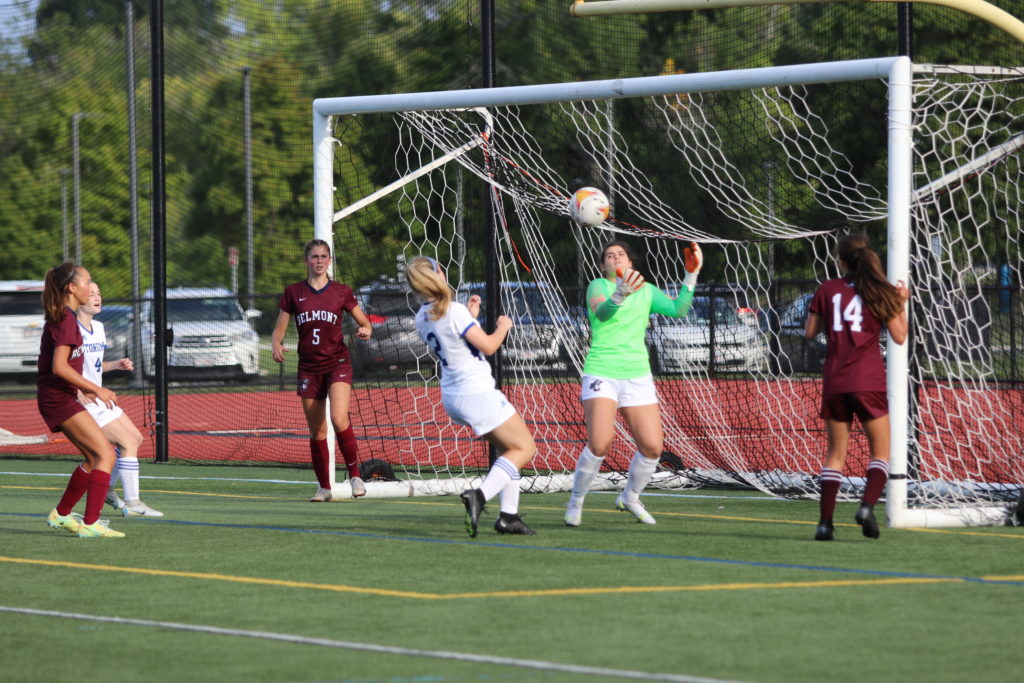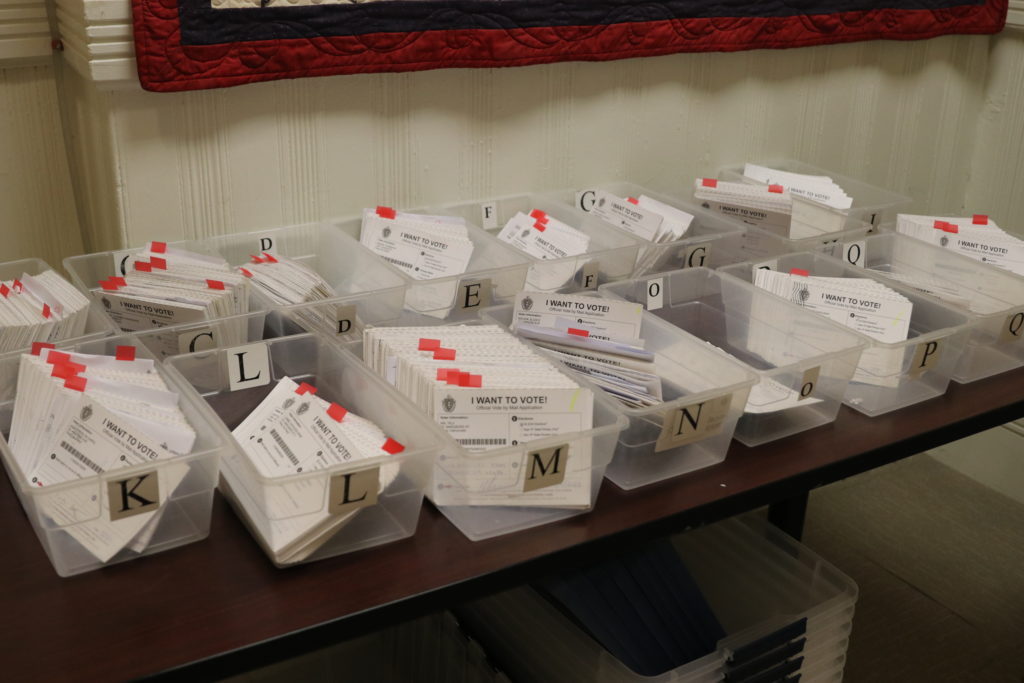Photo: Belmont High Freshman Danika Zicha scores in her first game (and first day as a high schooler) to give the Marauders a point in the 2022 season opener against Stoneham
It was Belmont High freshman Danika Zicha who had the “Get out of Jail” card for new coach Jemmy Cange as the ninth grader’s first high school goal – and certainly not her last – with 11 minutes remaining in the game salvaged a point in the 2022 opener held at Harris Field Wednesday, Sept. 7
“It felt great,” said Zicha post-game scoring on what likely will be her signature move for the next four years: outsprinting an opponent and rocketing a shot from a tight angle to salvage a point with the Spartans.
“New team, new school, and we got the tie,” said Zicha.
Zicha’s solo heroics came three minutes after the Spartans’ Jillian Spinali’s long-distance strike eluded an outstretched Yuval Golani to give Stoneham a well-deserved lead in a game where Belmont’s high preseason injury count was felt on the field.
“First games have a lot going on in them, a lot of nerves. But I like the fight and effort they put out, and that was good to see,” said Cange.
The first half was fairly uneventful as both teams were getting used to the varsity season. Belmont goalkeeper Golani kept the game at zeros with first-class one-arm diving save on a Stoneham half-break with eight minutes left in the first half. As the game progressed, Stoneham began dominating the midfield and were dangerous on set plays. It was off a corner with 14 minutes remaining that Spinali drove the first goal from beyond the penalty area.
But Zicha finally had the chance to show off her speed to round the defender and shot in stride passed the goalie.
Belmont’s second game didn’t have as beneficial an outcome as the Marauders’ traditional rival Winchester scored three in the second half to come away with a 3-0 win on Friday, Sept. 9. Belmont’s midfield kept the team from Winchester from developing an attack while the visitors kept Zicha and sophomore speedster Anna Santos at bay with a bit of the physical play by bodying the youngsters.
Winchester scored twice early in the second within two minutes with a straight on shot over Golani’s arms and from a corner. Belmont didn’t have an answer, running out of steam as the half progressed.
For the second game running, Belmont junior central defender Hannah Glavin was stellar in the middle of the defense, shutting down numerous attacks coming through the middle of the pitch.
“We do a good job keeping our opponants from our goal which also gets us on the offense,” she said.
The team is on the road Monday, Sept 12, against Melrose before hosting the annual Soccer Night In Belmont against Watertown on Saturday, Sept. 17 at 5 p.m.











